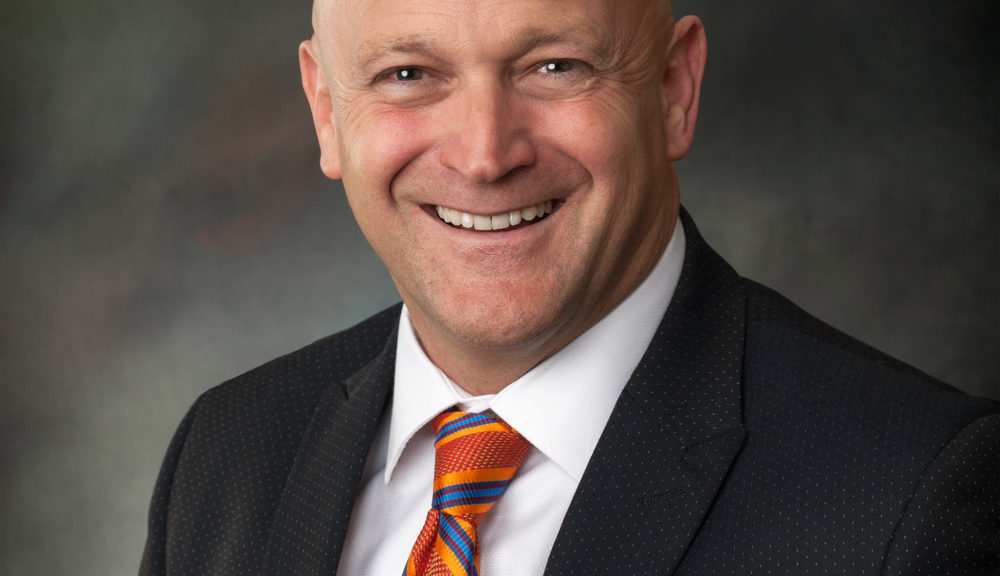
William E. Morgan, DC – President of Parker University
“Devote yourself to self-improvement, exercise, and relationships.”
DALLAS (PRWEB)
April 21, 2020
While the COVID19 virus rages across the globe killing tens of thousands, the recommendations from infectious disease experts will also leave a grim toll on society. “Social distancing” and self-imposed isolation are certainly an appropriate societal response to impede the impact and spread of this dreaded virus, but these actions will also cause an unintended secondary health crisis. Society needs to identify this and work to minimize its impact.
The health risks of self-isolation caused by the current shelter-at-home mandates include a deleterious effect on several systems of the body: musculoskeletal (muscles and bones), cardiovascular, mental health, neurological and cognitive health, and immune systems. Ancillary news stories are revealing the unintended consequences of the current plan of action. These stories include the death of a well-known star from a pulmonary embolism (a blood clot in the lungs often caused by prolonged sitting), a dramatic increase in societal alcohol consumption, anxiety from job/income loss, accelerated dementia of patients in nursing homes because of isolation, and reports of increased anxiety and depression.
For some people this lockdown will shorten their life expectancy more than exposure to the virus would. They will survive the virus, only to shorten their lives through a passive interpretation of how they should hunker down. However, there are action steps which can ensure not only survival of this lockdown, but also better health on the other end of it.
A Plan of Action Should NOT be a Plan of Inaction
This lockdown will last several more weeks and could indeed last for a couple more months. Cardiovascular, muscle, bone, and mental capacities rapidly atrophy in the absence of stimulation and exercise. Individuals must have a plan of action to preserve their physical health and mental faculties. This should not be a time of binge eating while watching TV.
Exercise every hour, not just every day. While a daily workout is important, it is also important to move throughout the day. Movement will help keep the immune system active, lymph flowing, and prevent blood flow from stagnating and forming clots. Get up and walk around at least every hour, and avoid prolonged sitting. If someone is in the midst of watching their favorite tiger documentary, they should get up and march in place for a few minutes every hour.
Work out every day. While motion is important for blood flow and immune response, everyone should continue to exercise to prevent loss of muscle and bone strength as well as cardiovascular fitness. Move every hour, but also work out every day. The speed at which muscles atrophy and cardiovascular capacity diminishes during total rest is astounding. It is vital to work your muscles and heart every day while in isolation. There are plenty of resources on the internet for exercising while in isolation.
Avoid social isolation. Social distancing is a misnomer; more appropriately it should be called physical distancing. People need to avoid social distancing and instead remain socially engaged. This can be done through social media, phone calls, FaceTime, and many other mediums. To see a face during social time, is even better. During this time of lockdown, many have been contacted by old friends whom they have not heard from for years. Take this time as an opportunity to connect with old friends and to re-establish a social network.
Isolation is a factor that accelerates the symptoms of dementia and depression. It is important to avoid social isolation and continue to maintain a healthy network of friends and family. Take the opportunity to contact those who are isolating alone during this lockdown and engage them often.
For those in lockdown with other people, remain connected. Play games. Be creative. Plan, prepare, and eat meals together. Talk. Listen. Pop popcorn and watch a feel-good movie when watching something. Avoid compulsively watching the news or focusing on the negative aspects of this historic event.
Helping others will help yourself. If you can be a beacon of hope to others, you will be uplifted as a fringe benefit. Right now there are many depressed, anxious people focusing on negative events over which they have no control. If you know of someone slipping into despair, call them and encourage them.
Get outside. Exposure to the sun is important on many levels. It affects mood, helps the body establish the normal circadian rhythm of the sleep-wake cycle, and it also helps the immune system through the production of vitamin D.
Focus on self-improvement. It is hard to get depressed while actively seeking a goal. It is valuable to take this time at home to improve physically, mentally, and spiritually. This can be accomplished by exercising every day, seeking depth in relationships, and working on projects that will fulfill life goals.
Try to view the current shelter-at-home directives metaphorically. Be like the caterpillar who enters the cocoon for a season of metamorphosis which later emerges from the cocoon with a new purpose and the ability to take flight. What you spend your time doing now will impact your future. Devote yourself to self-improvement, exercise, and relationships.
Keep a positive mindset and remember, “You are not stuck at home, you are safe at home.”
William E. Morgan is president of Parker University in Dallas, Texas. He has served as a consultant to the medical departments in the U.S. Capitol and the White House.
About Parker University:
Parker University (Parker.edu) was founded in 1982 by Dr. James W. Parker, DC, originally as Parker College of Chiropractic. In 2011, the name was changed as its curriculum expanded. Today, Parker University has 1,600 students and 29 academic programs, including its famed chiropractic program along with master’s degrees in neuroscience, clinical neuroscience, and functional nutrition. Currently, Parker University’s chiropractic cohort is the second largest of any campus in the world.
Share article on social media or email:

